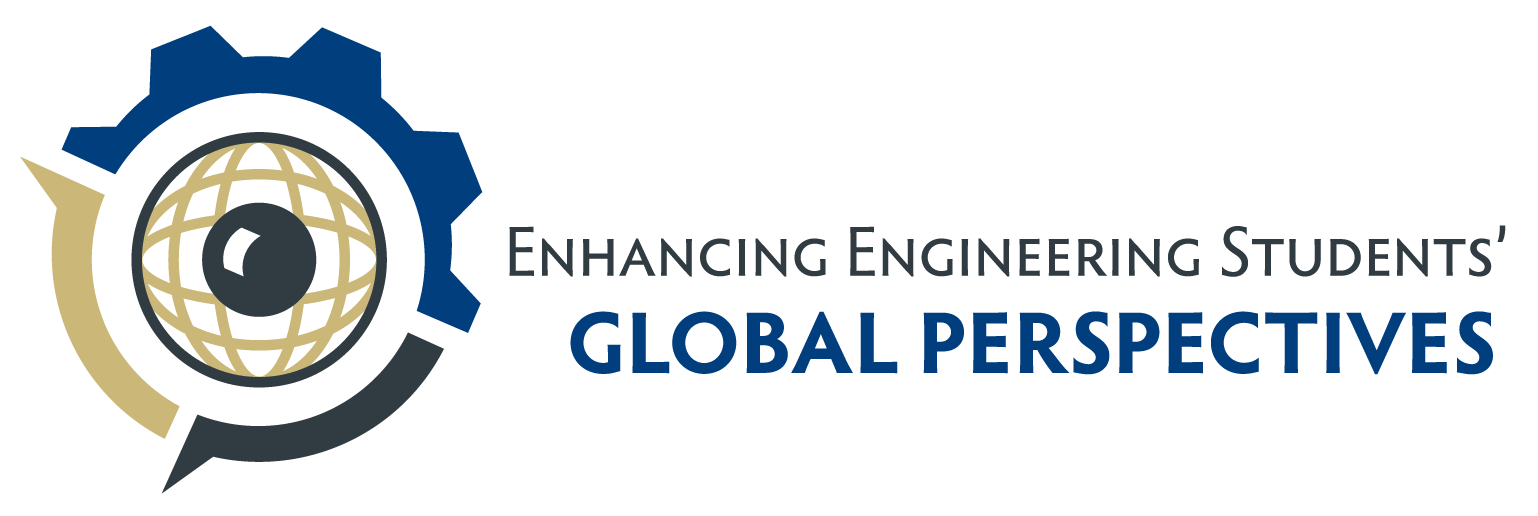Study 1
A Delphi using Subject Matter Experts (SMEs) in International Engineering Education
The purpose of Study One has been to establish a baseline model of the global engineer’s professional attributes, to expand these attributes to constructs and learning outcomes, and to ultimately develop complementary instruments focused on measuring the outcomes. To do this, the team conducted a comprehensive Delphi study, identifying and then obtaining opinions from experts on the constructs and the learning outcomes of these constructs based on the initial set of attributes. The Delphi study consisted of three rounds that culminated with a face-to-face meeting followed by a fourth and final analytical and mapping synthesis. The sample included 18 Subject Matter Experts (SMEs) representing engineering faculty with experience in international education, international education practitioners, industry representatives familiar with international engineering assignments, and project officers from agencies that sponsored international engineering opportunities.
In Round 1 participants addressed two open-ended questions:
What characterizes a globally prepared engineer?
What are the learning experiences necessary to produce such an engineer?
Their responses were used to construct a questionnaire that participants completed in the second round. From the participants’ second round responses areas of consensus and divergence were identified and used for the third round, in which the SMEs revised their judgments and provided their rationale. These were then discussed at a face-to-face “summit,” at which participants came to consensus about the learning outcomes and programmatic elements that influenced the quality of global experiences and addressed the connections to global preparedness. As part of the summit, the SMEs created semantic maps of global engineering preparedness outcomes. Following the summit, these were then synthesized into a single map that was vetted by the SMEs during the fourth and final round. The resulting map (see Delphi Model) provides an organizing framework for international engineering education and illustrates the interrelationships among engineering global preparedness attributes and three other broad categories: intercultural contextual knowledge, personal and professional qualities, and cross-cultural communication skills and strategies. The outcomes from this study were used to produce a model of global engineering preparedness, which helped to provide the basis for a student background instrument that was employed in Study Two, as well as provided a means to determine how certain outcomes were achieved from students’ international and global experiences.
Study 1 Related Publications
Besterfield-Sacre, M.E., Matherly, C., Ragusa, G., Shuman, L., Streiner, S., Cunningham, S., Levonisova, S., and Huang, S., "Development of an Operational Model for Global Preparedness in Engineering Education (in preparation)," Journal of Engineering Education
Ragusa, G., Besterfield-sacre, M.E., Matherly, C., Shuman, L., Streiner, S., Cunningham, S., Levonisova, S., and Huang, S., "Global Competency Models: A Comparison Study (in preparation)," Journal of Studies in International Education
S. Huang, S. Levonisova, Streiner, S., S. Cunningham, G. Ragusa, M. Besterfield-Sacre, L. Shuman, C. Matherly, and D. Kotys-Schwartz,“Moving Toward a Research Informed Conceptual Model of Engineering Global Preparedness”, 2014 ASEE Annual Conference and Exposition, Indianapolis, IN June 2014
Streiner, S., M. Besterfield-Sacre, L.J. Shuman, and K. Bursic, “An Approach to Evaluate Engineering Global Preparedness in Industrial Engineering Curricula,”2014 Industrial and Systems Engineering Research Conference (ISERC), Montreal, Canada, May 31 – June 3, 2014.
